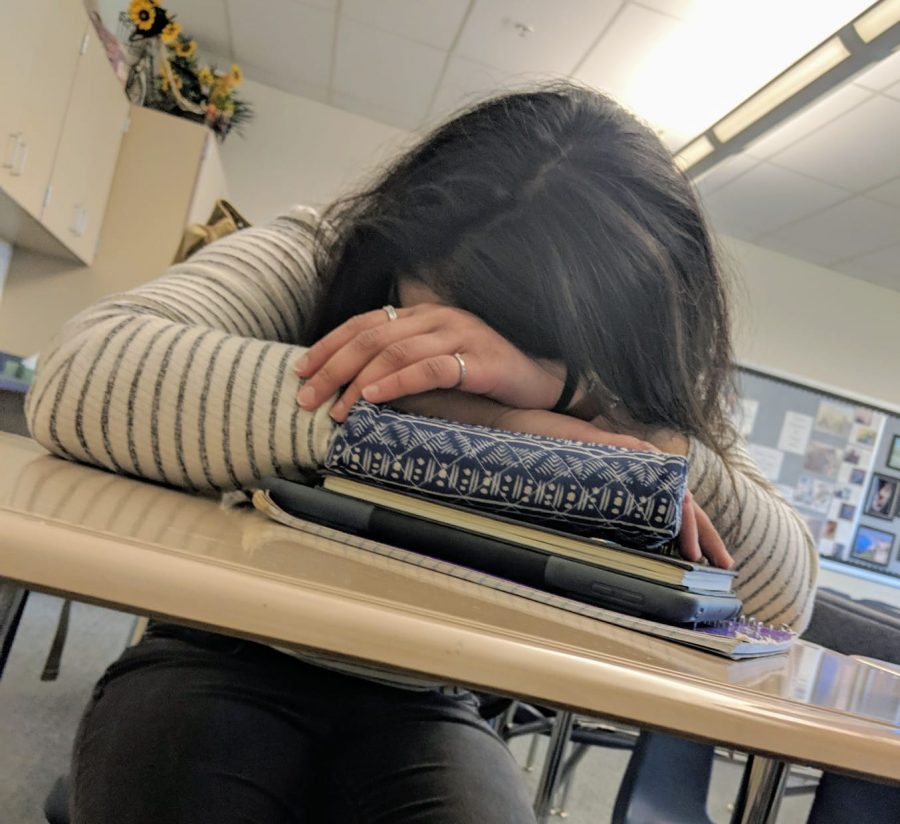Many students argue for later start time, faculty disagrees
April 4, 2019
The growing number of chronically sleep-deprived high school students has pushed school districts across the country to set later high school start times, though debate has come alongside this change. Districts who have changed their start times point to the numerous studies done on the sleep habits of teenagers displaying the growing number of chronically sleep-deprived students. Here at Manheim Township, administrators and staff members are, generally, under the belief that the responsibility of getting adequate sleep falls upon students while the student body, by and large, argues that the district must come forth with a plan to aid students who suffer from chronic sleep deprivation.
Staff and administrators at Manheim Township, overall, argue that chronic sleep deprivation is not an issue caused by the school’s hours. Amber Biddle, a teacher at the high school, points out that “We have many students that operate just fine.” Many students at Township do appear to function normally and consistently achieve good grades throughout high school, whether or not they happen to be sleep-deprived. Nikki Rivera, the school board president, states that “Planning sufficient sleep each night is as important as planning our waking time activities.” Students must be responsible for their own sleep schedules, and students’ sleeping habits are not a school matter, according to most staff and administrators.
The school’s hours are contingent upon several factors, and cannot be adjusted without both approval from the school board and coordination between every school in the district. Changing these hours may be more trouble than it is worth, according to some staff. Heather Noll, a teacher, argued regarding a later start time that, “I think that whatever’s keeping them [students] up will just keep them up longer.”
Students, in general, appear to believe that a later start time is needed to allow students to achieve both adequate amounts of sleep and academic success. Emma Newswanger, a freshman, claims that “[A later start time] would help us academically; we would feel more awake and we’d be able to think.”
Chronic sleep deprivation, a serious condition that many students are forced to grapple with, not only affects a student’s mind and concentration, but, in serious cases, can harm students’ physical health. Aroob Khan, another freshman, says of her experience with sleep deprivation that “[It] has had a negative effect on my health, causing a lot of stress, anxiety, and physical exhaustion.”
Most, if not all, of these students have little control over their sleep, especially student athletes. Maria Newcomer, a lacrosse and rugby player, says that “There’s homework on top of practices, and by the time I finish, it’s ten o’clock, and I still have to take a shower and eat.”
As this debate at Manheim Township continues to grow, it remains to be seen whether Township will follow in the footsteps of other districts across the country.













Brendan Duffy CCSH • Apr 4, 2019 at 2:22 pm
It sounds like the teachers are not aware of basic science regarding the circadian shift of teenagers sleep patterns. And the statement that the teens would not increase sleep time anyway is false as research shows. They do indeed increase sleep time. Please visit http://www.startschoollater.net for factual information. In this case- it appears the students have more correct information than the adults. Let’s keep these teens healthy. They can’t decide school start times so they are correct in stating it is the school that impacts their wake up time
https://www.startschoollater.net/uploads/9/7/9/6/9796500/sleep_handout_for_kids_and_adults_20.pdf